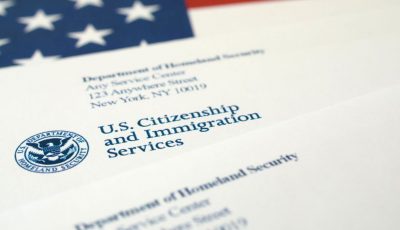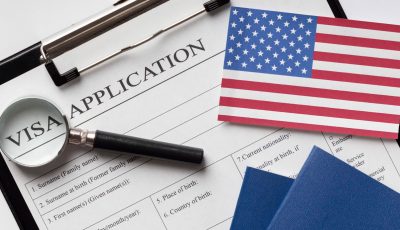Torres seeks USCIS’ support to prevent economic crisis
Advocating for the many businesses and CW-1 workers in the CNMI, Gov. Ralph DLG Torres is requesting U.S. Citizenship and Immigration Services for an expedited processing of CW-1 applications so that businesses can continue recovery and maintain operations, while receiving the authorization to have their workers remain in the CNMI.
Torres sent a letter to acting USCIS director Kenneth Cuccinelli, underscoring the partnership between the CNMI and its federal partners toward an efficient CW program that promotes economic growth, local business success, and U.S. workforce development, while also keeping families together. He noted that significant issues within the new CW application process have caused confusion on the federal processing side for law-abiding businesses.
“I am writing in the interest of our partnership and shared goals toward the efficacy of the CNMI-Only Transitional Worker program. Currently, significant issues exist with the Interim Final Rules promulgated under the [NMI US Workforce Act of 2018] that are threatening to cripple our economy and counteract the gains we have made in U.S. citizen employment. Specifically, due to the newly implemented four-step process in obtaining a temporary labor certification—a necessary component in a CW1 petition—CNMI employers are experiencing varying complications, unclear instructions, and extended application processing times,” the governor stated in his letter.
While the CNMI government has made every effort to assist in the implementation of the new federal regulations, many employers report that they will not receive their temporary labor certifications in time to process their CW-1 petitions with USCIS prior to the end of the fiscal year.
Torres emphasized that this will inevitably result in late CW-1 petitions and the forced departure of a large number of the CNMI’s workforce at the end of this fiscal year—an issue that the administration is working hard to prevent. He added that this forced departure will have a negative effect on U.S. workers as well.
“The loss of these workers presents a dire situation for our employers, our economy, and the U.S. workers who work alongside CW-1 visa holders. In fact, in consideration of this imminent threat to the CNMI workforce, employers are considering closing businesses or limiting operations, which only contributes to the emergency state of the CNMI’s economy as we are still recovering from the onslaught of Super Typhoon Yutu. Clearly, this situation undermines the overall purpose and legislative intent of the CW program.”
Proposing a solution, Torres requested for a dialogue with USCIS on the options available to provide CNMI employers expedited processing of their CW-1 applications so that they may receive the necessary authorization to have their workers remain in the CNMI.
The governor also requested USCIS for assistance in providing for an adjudication process in this first application period under the new law that works with employers to remedy deficiencies within their applications to correct any misinterpretation of the new requirements or a delay in receipt of their required U.S. DOL documentation.
“The new processes implemented for the CW-1 program are complex, and CNMI DOL has received numerous complaints from businesses,” said Labor Secretary Vicky Benavente.
“It is the case that, despite the statutory requirement for employer training on the new permitting process, no on-island training on these new requirements has been offered. CNMI DOL and the Office of the Governor have been working very hard to address our businesses and employers’ concerns by communicating consistently with our federal partners,” she added.
Because of the present circumstances and the limited outreach on the new application procedures, Torres also asked USCIS to provide consideration for employers to correct deficiencies in their CW petitions and not proceed immediately to issuing a denial of the petition. The governor said that without some agreement on the deficiencies of this current application process, many of the workers the CNMI relies upon to maintain economic activity will depart for an undetermined period of time.
“This loss of workers will result in the furlough or unemployment of U.S. workers in our fragile economy. This is ultimately the outcome we are seeking to avoid. Our government has worked very hard over the last few years to sustainably grow our economy by ensuring business success and the protection of U.S. workers. We also worked very hard to keep families together.”
Torres and the CNMI Department of Labor has had several meetings with businesses, concerned U.S. employees and CW workers, and the Saipan Chamber of Commerce over the last few months on solutions.
“We all agreed that the solutions to this problem is for USCIS to provide clarity on the current CW application process for our businesses and our workers. At a time when the CNMI is still in recovery, we are working with our federal partners to avoid another crisis. It is our hope that our work with USCIS and USDOL will save our economy, protect our U.S. workers, and keep families together. At the end of the day, this work will always be for every single person who calls these islands home.” (PR)



























